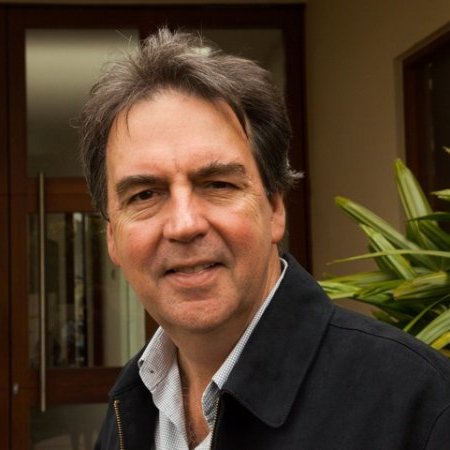A Place at the Table

If you work for one of the publicly-listed broadcasters, you probably find yourself asking ‘What the hell were they thinking?’ when it comes to some of the decisions that filter down from the company board.
From time to time, large media company boards seem to make some crazy decisions, sending everyone in the company off pursuing a strategy that even the most basic of industry experience would tell you is fundamentally flawed.
Sure, sometimes with their financial might, the big boys will survive the outcomes of bad decisions, and, go on to live to fight another day, but, recent experience says that doesn’t always happen.
The big question that many frustrated employees would like an answer to is ‘when are the shareholders of these major radio companies going to wake up and start appointing non-executive directors with genuine industry experience?’
 Phillip Di Bella, the Australian coffee king, went into print recently in the Australian Company Directors’ magazine saying that, in the coming decade, entrepreneurs will be in big demand as directors across many companies – public and private.
Phillip Di Bella, the Australian coffee king, went into print recently in the Australian Company Directors’ magazine saying that, in the coming decade, entrepreneurs will be in big demand as directors across many companies – public and private.
Phillip’s reasoning is that entrepreneurs, and former hands-on industry specialists, bring an entirely different perspective to companies from so-called ‘professional directors’, who often don’t have any practical experience in the businesses they’ve been brought in to govern.
The so-called professional director’s strategic vision for a business is based entirely on what they think the business might need.
There’s clearly no certainty about it, because they often have no depth of industry knowledge or experience to draw on.
Wouldn’t you think that given all their troubles of late, Australia’s major radio companies would have learned the lessons of the past and embrace this new entrepreneurial concept to create a better vision for their networks going forward?
Given this new thinking, will Australia’s media companies become innovative and bite the bullet on non-exec directors in the future?
No, of course not.
When it comes to board appointments; it’s strictly a no risk environment!
In this regard, media companies might as well be banks.
You’ll see over the next year or two that most non-executive directors appointed to Australia’s radio company boards fall well inside the ‘comfort zone’; accountants, lawyers and academics.
Even the ABC is not exempt, with the recent appointment of yet another Sydney-based accountant to its board.
The point is, you may well get good governance by being ultra-conservative in the choice of directors, but you can bet the farm you won’t be seeing the emergence of a lot of innovative and creative strategy to drive these radio businesses into the future.
Media businesses are supposed to be innovators.
 Heaven knows, as our industry becomes a tougher and tougher environment to operate in, with all the external challenges and competition we face, those who are trying to run networks ‘at the coalface’ appreciate that creativity is the only differentiator that will help them win out against their competitors.
Heaven knows, as our industry becomes a tougher and tougher environment to operate in, with all the external challenges and competition we face, those who are trying to run networks ‘at the coalface’ appreciate that creativity is the only differentiator that will help them win out against their competitors.
Examples of success and failure in this business are talked about around the water cooler every day. It’s grist to the mill!
Any culture of creativity must come from the top, right from the boardroom table, and, it must be driven down and embraced throughout the organisation.
For this to be effective, the people in the organisation must be able to respect the culture they are being asked to embrace.
So, you have to ask yourself, in any media organisation, what can a board, comprised entirely of lawyers, accountants and academics genuinely contribute to setting an innovative strategic direction, and, producing a truly creative culture that the organisation can believe in.
This is especially so when the people within that company are themselves specialists in, and thrive on, creativity each day.
We see the results of that creativity in their on-air performances, in production, in promotion, in sales, and sometimes, in administration.
A radio company board needs to offer its people a creatively challenging workplace and satisfy their creative needs through the development of a great strategic direction.
Unfortunately, most ‘professional directors’ don’t really understand the ‘nuts and bolts’ of this business, because they’ve never got their hands dirty within the industry.
In most stock standard businesses, like manufacturing, creativity probably doesn’t matter that much, because the concept of ‘real’ creativity is as foreign to the employees as it is to the directors, but not so in radio.
Creativity is our lifeblood.
Southern Cross Austereo recently brought in new non-executive directors to rejuvenate the board.
This is always a healthy process.
Kathy Gramp, with her radio credentials, will be a welcome addition, but, when it comes down to it, Kathy is still an accountant and a ‘safe’ choice.
Most boards probably need at least one lawyer or accountant to ensure good governance.
However, diversity amongst directors is critical for boards to perform well.
So, why aren’t radio boards looking for recognised skilled industry professionals to add to that diversity; people who could drive the debate on strategy from a knowledgeable, rather than an academic level.
There are many highly competent industry professionals, who after stellar radio careers in management and creative roles, should now be contributing.
These could include people, who have been there and done that as top executives, like Paul Thompson, Brad March, Graham Mott, Dan Bradley and Greg Smith, to name just a few.
Harnessing their decades of knowledge at a board level would be a smart move to help many radio boards perform more innovatively and effectively.
Having this industry knowledge instantly available at a board level would also improve a company’s exposure to risk.
Serious errors in judgement that may be made at a management level, for which the board may ultimately have responsibility, may be nipped in the bud by some prudent advice across the boardroom table.
Industry-experienced directors would also be more likely to garner investor and stakeholder support, as well as the respect of employees, making the business stronger and more competitive.
 About The Author:
About The Author:
Brad SMART has been a journalist, consultant, author, broadcaster, film director and was the former owner of the Smart Radio Network throughout Queensland.
Brad is also a Graduate of the Australian Institute of Company Directors.
Brad can be contacted at on email here.


